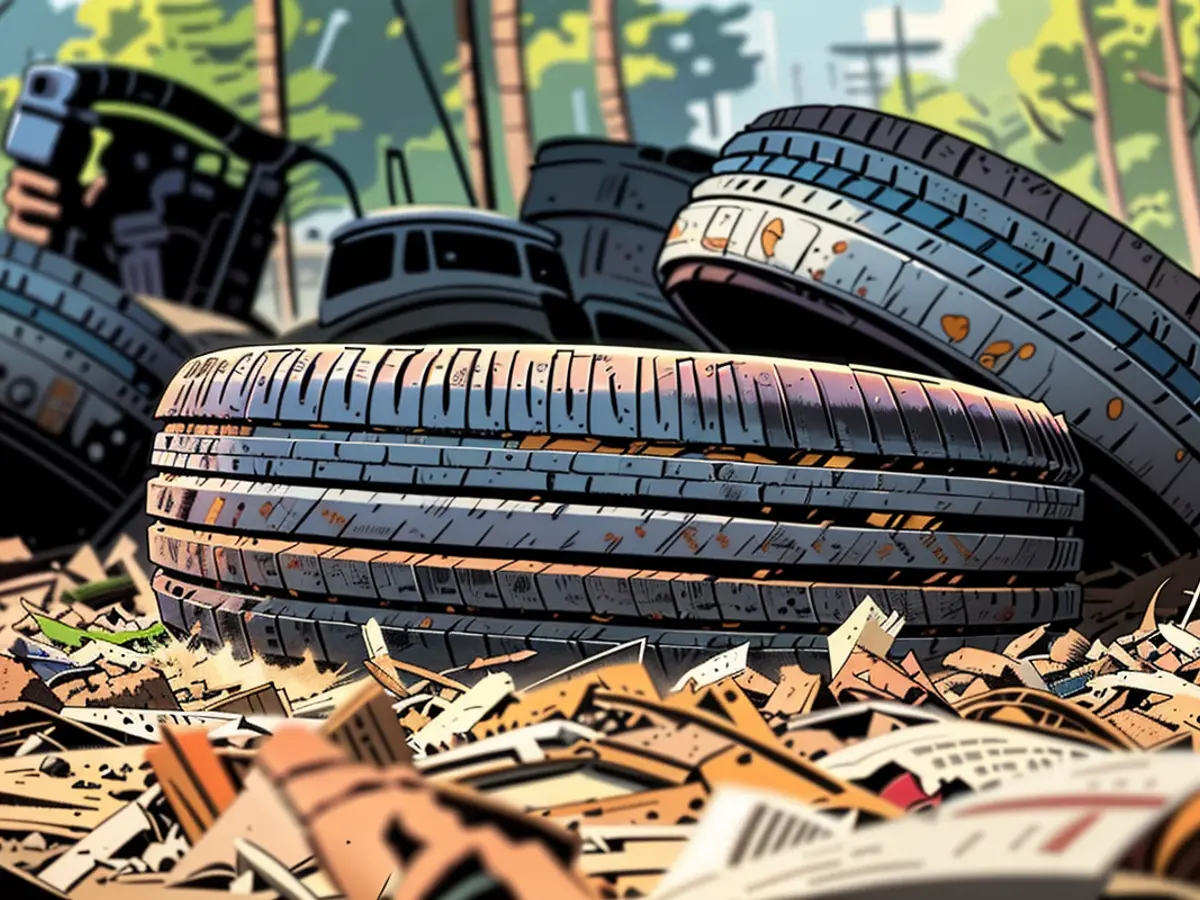- Garbage, Paint, and Tires - The Forest Is a Problem
Environmentalists see illegal waste disposal as a problem in Germany, but the nationwide extent is unclear. "Our estimate is that littering - from tissues to household waste - is at a high level, if not increasing," said Christoph Rullmann, federal managing director of the German Forest Protection Association. "Despite awareness of the consequences, especially for animals and forests, there is no sense of wrongdoing." Germany-wide figures for the amount of waste are not available.
This lack of data contributes to the differing estimates on the topic. Sven Selbert, an expert for forests at the Nature and Biodiversity Conservation Union (NABU), said he knows of no reliable indicators or logical reasons why waste in forests might be increasingly a problem in general. "Compared to the post-reunification period, the problem may have even decreased." Improved and often free recycling options offered by municipalities suggest that less waste may be illegally disposed of.
The data situation is difficult
How much waste is disposed of illegally? The North Rhine-Westphalia Forest and Wood State Agency cannot make a reliable statement about the amount on its territory. There are no statistics.
Similarly, the Berlin Forestry Administration does not have precise figures. The same applies to the Hessian Forestry Administration and the Bavarian State Institute. In Hamburg's forests, a total of 125 cubic meters of waste were discovered in 2022 - less than two years ago (182 cubic meters). This amount would fill about two large overseas containers.
Hesse's Forestry Administration listed, among other things, construction debris, garden waste, household waste, household appliances, old clothes, concrete blocks, and even old batteries, paints, and varnishes as things thrown into forests. Those caught face fines of up to 50,000 euros. In Berlin, fines can reach up to 10,000 euros, and in NRW, up to 25,000 euros. If no perpetrator is found, the owner must pay.
Increasing fines as a step against illegal disposal?
"Higher fines are not a solution, according to the German Forest Protection Association," said Rullmann. Most cases result in an unknown person being reported, which goes nowhere. There is a lack of personnel and time to search the waste for clues. NABU noted that fines can indeed have a deterrent effect.
"If we're not careful, the problem will worsen," said Alexander Knebel, spokesman for the Association of Forest Owners, to the "Rheinische Post". For the NRW Forestry Administration, prevention through information and education is key. They use educational offers to teach children the right behavior in the forest in a playful way.
Why is waste dangerous?
Animal welfare advocates warn of injury to animals. They can get stuck in jars or cups or cut themselves, said Rullmann. Furthermore, chemicals or paints could contaminate groundwater. "Frequently, decorative plants and invasive species spread in forests through the disposal of garden waste, which are not native here. They could displace native flora."
A plausible explanation for illegal waste disposal in nature is not something Nabu expert Selbert necessarily has. He stated that municipal waste disposal is usually easily accessible. In rural areas, however, longer journeys may be required. "This behavior is a form of sociopathic conduct."
Despite the lack of nationwide statistics on waste disposal in forests, environmental organizations like NABU suggest that the issue might have decreased compared to the post-reunification period, due to improved recycling options offered by municipalities. The nature, specifically forests, continues to suffer from illegal waste disposal, posing risks to animals, contaminating groundwater, and encouraging the spread of invasive species.






